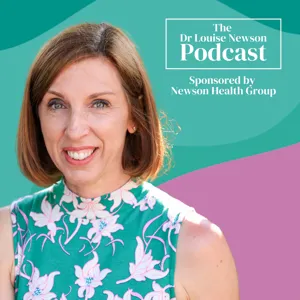Today I’m chatting with Dr Anne Henderson, a highly experienced Consultant Obstetrician and Gynaecologist who has spent 17 years as a senior consultant at a major acute NHS Trust, following undergraduate studies at Cambridge University
Dr Anne is passionate about women’s health issues, particularly menopause and HRT, which is now a key health agenda. She has extensive experience in this area having undertaken postgraduate research into the menopause, HRT, PMS and post-natal depression.
In addition, she is a British Menopause Society Accredited Specialist, a recognition currently held by fewer than 200 practitioners in the UK and Anne also believes in offering her patients the full spectrum of treatments which includes complementary therapies such as herbal medicine.
She has worked closely with a medical herbalist in Kent for the last 20 years: this collaboration has been highly successful and forms an integral part of Anne’s clinical practice and educational seminars. She believes that the role of complementary therapies, particularly herbal medicine, is greatly under-recognised by most healthcare practitioners … which is why we’re talking about it today!
For more information I highly recommend checking out Anne’s brilliant book Natural Menopause, full of illustrations, tips and practical advice from a trusted professional.
You can download The Doctor’s Kitchen app for free to get access to all of our recipes, with specific suggestions tailored to your health needs and new recipes added every month. We’ve had some amazing feedback so far and we have new features being added all the time - check it out with a 14 day free trial too.
Do check out this week’s “Eat, Listen, Read” newsletter, that you can subscribe to on our website - where I send you a recipe to cook as well as some mindfully curated media to help you have a healthier, happier week.
We would love to get your feedback on the subject matter of these episodes - please do let me know on our social media pages (Instagram, Facebook & Twitter) what you think,and give us a 5* rating on your podcast player if you enjoyed today’s episode.
Check out the recipes and app here: https://apple.co/37PvMMX
Join the newsletter and 7 day meal plan here: https://thedoctorskitchen.com/newsletter/
Check out the socials here: https://www.instagram.com/doctors_kitchen/
Hosted on Acast. See acast.com/privacy for more information.


